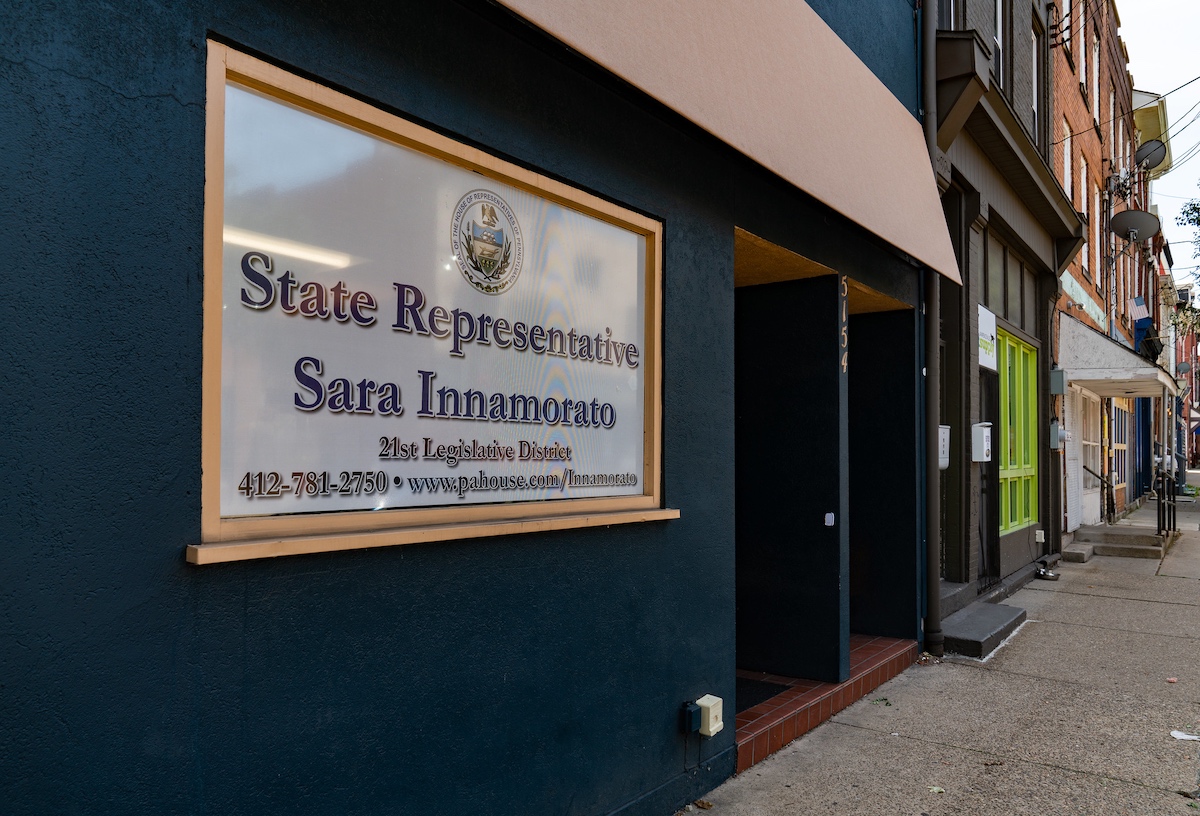After a contentious election season and a six-way ticket, Sara Innamorato has come out on top with 37% of the vote and the Democratic nomination in the race to become the next county executive.
The role, currently held by Rich Fitzgerald, is considered one of the most powerful in Pennsylvania government, as it oversees the state’s second-largest county.
Innamorato made a name for herself as a progressive in her time as a Pennsylvania state representative. During her campaign, with endorsements from the likes of Pittsburgh Mayor Ed Gainey, US Rep. Summer Lee, Emily’s List, Clean Water and even Jane Fonda’s Climate PAC, she doubled down on receiving support from fellow progressives.
As PublicSource noted, she won the race over “well-established party hands — largely without courting the business community.” Where does she stand on tech and business issues?
Unions
Through the years Innamorato has been a friend to unions, so much so that throughout the Pittsburgh Post-Gazette’s seven-month strike, she’s refused to give the newspaper an interview out of solidarity with the Newspaper Guild of Pittsburgh. Prior to 2023, she could be seen joining the picket lines with the Bakery, Confectionery, Tobacco Workers, and Grain Millers International Union outside of Kellogg’s factory in Lancaster, Pennsylvania.
Such actions have gained her endorsements from the Pittsburgh Federation of Teachers, Pittsburgh Starbucks Workers the United, and Service Employees International Union’s Pittsburgh chapter.
Since she was elected to state office in 2018, Innamorato has been a vocal critic of the University of Pittsburgh Medical Center on the grounds that it treated its employees who desired a union unfairly, and is a monopoly.
Innamorato has also criticized ecommerce giant Amazon for its status as a “union buster.” And when Pittsburgh was in the running to become the company’s second headquarters in 2018, while Innamorato didn’t entirely oppose the proposal, she stated at the time that it was imperative that Amazon would need to commit to paying its share of taxes, paying workers a fair wage, and that there would need to be full transparency throughout the discussion process.
Business support
While in office, Innamorato has stated that it’s important to balance supporting businesses operating in the city with the needs of community residents. This sentiment has taken the form of calling for affordable housing so long-time residents aren’t priced out of neighborhoods and supporting living wages.
As of 2022, Innamorato has been a member of the city’s Urban Redevelopment Authority’s board after being named by Mayor Gainey, with an aim to foster an equitable economy for Pittsburghers. Innamorato recently voted in favor of authorizing $9 million in federal relief pandemic funding to be put towards preserving affordable housing.
Reply to a Pittsburgh Business Times county executive candidate survey this month, Innamorato emphasized that under her, economic growth would come from creating good jobs and green initiatives. Here was her pitch for why she was the best candidate for the broader business community:
“Government exists to level the playing field and create the conditions under which all residents can thrive.
The private sector needs a strong public sector to ensure vital investments are made in our public goods, like infrastructure and social services. I will be a county executive who is collaborative and builds partnerships with colleagues at the federal, state and local levels, as well as across industry sectors. In turn, we will have a healthy tax base, a well-trained workforce to allow for economic growth and attract investment and residents with the expendable income required to support private businesses. This is the only path to sustainable growth.”
Autonomous vehicles
Innamorato has typically taken a measured stance on autonomous vehicles during her time in office.
In 2019, she said via Twitter after a Pittsburgh City Council public hearing that autonomous vehicles held promise for the future, but residents should have a say in any conversations about the technology’s implementation in the future.
In June 2022, however, she voted against the legislation that lifted the human-driver requirement for self-driving cars in the state. Prior to the vote, Innamorato tried to amend the bill to mandate that a human driver be present when moving goods across state lines or in cases when the vehicles were transporting more than eight vehicles. Ultimately her amendment failed, and in the end, Innamorato’s objection to the legislation wasn’t due to an issue with the technology itself, but the union workers she worried might be displaced.







